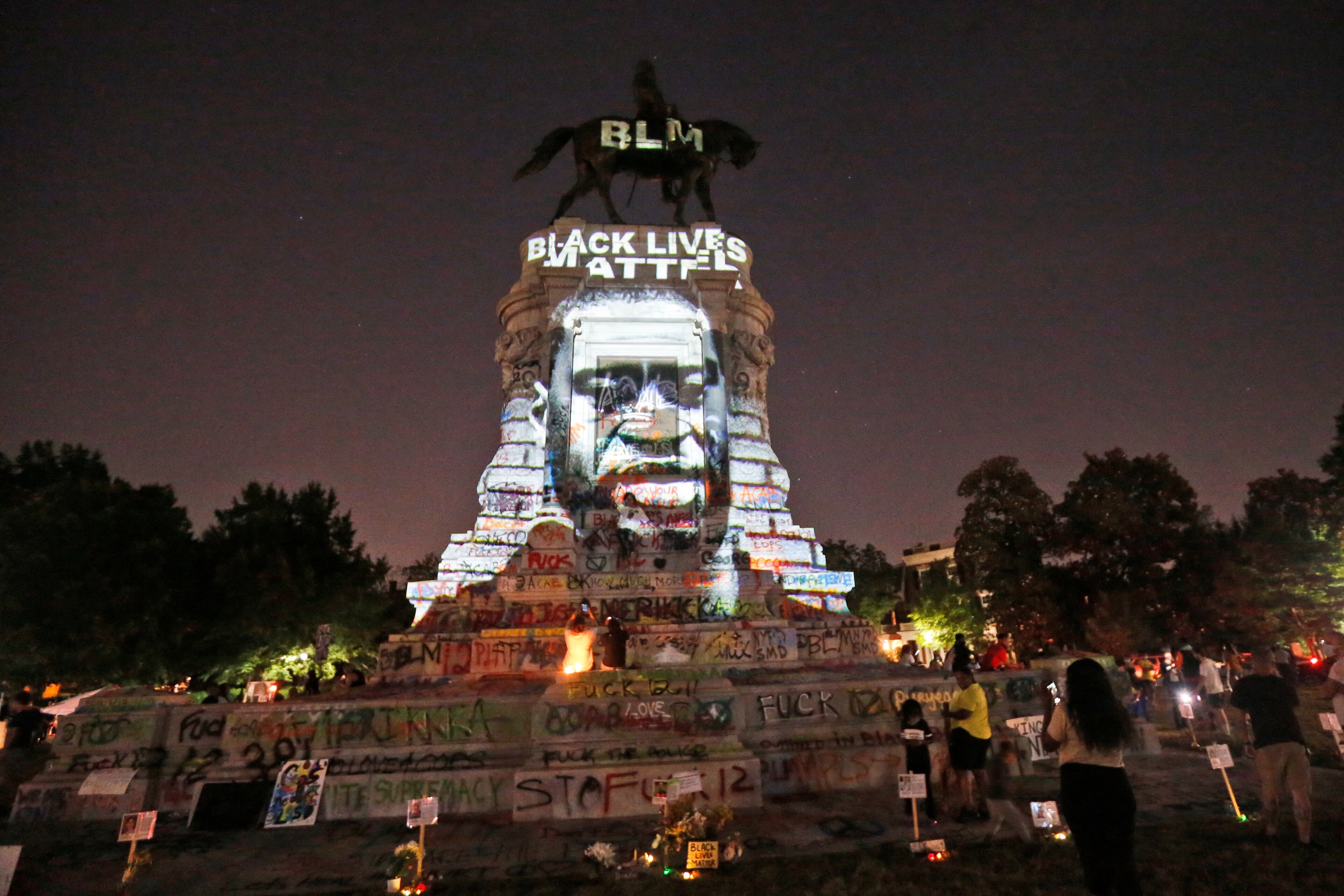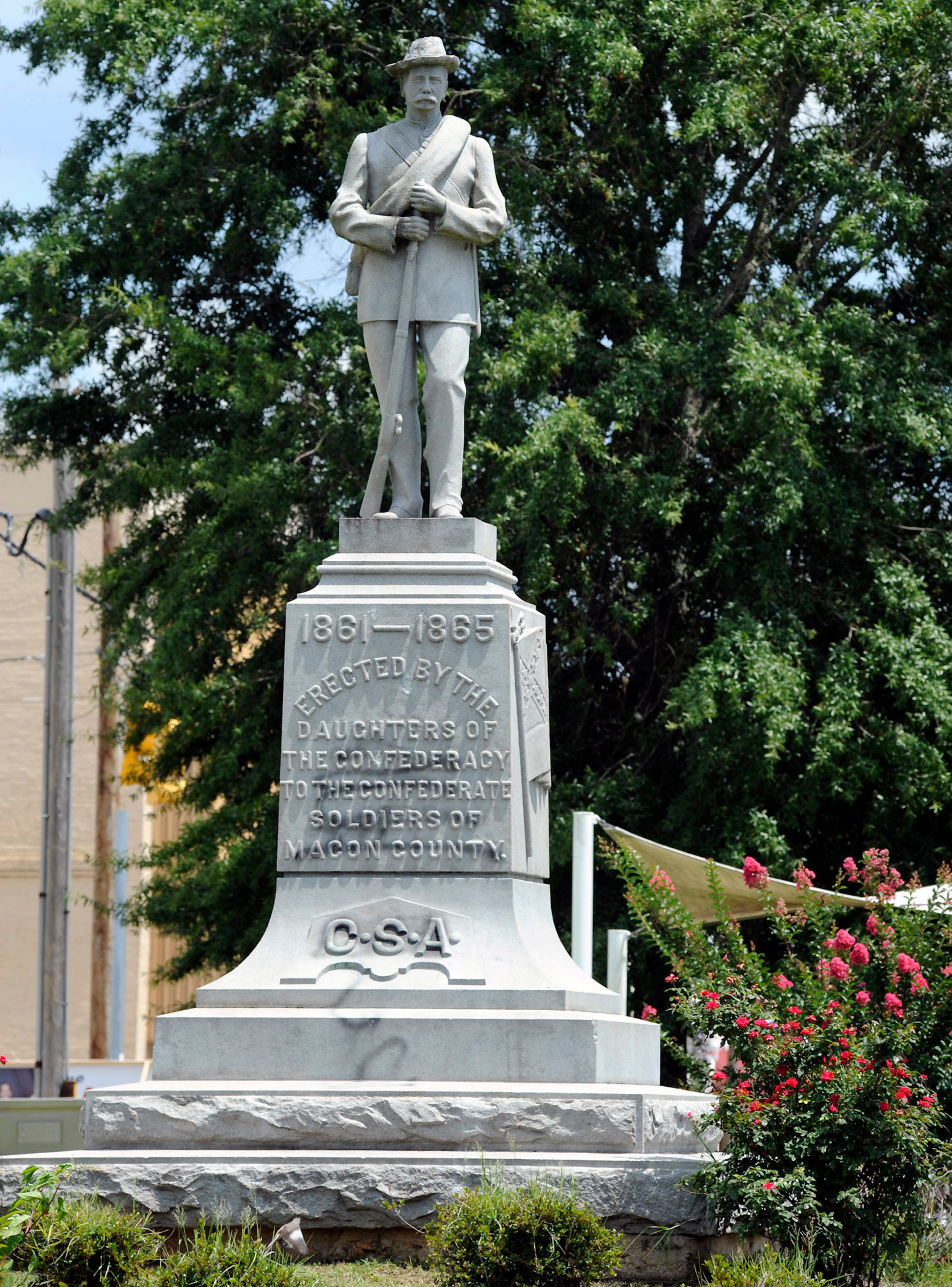Mostly black Alabama county covering up Confederate statue
A majority black county known as a birthplace of African American empowerment will cover up a Confederate memorial erected more than a century ago and is looking for ways to remove it permanently, a government leader said Tuesday.
»RELATED: Alabama city removes Confederate statue without notice
Vandals recently spray-painted obscenities on the 111-year-old statue of a rebel soldier that stands in a square in Tuskegee, and workers will use a tarpaulin to hide the words and statue from view, Macon County Commission Chairman Louis Maxwell said in an interview.
At The Atlanta Journal-Constitution, we focus primarily on Georgia news, but we also like to provide readers with regional coverage of the Southeast. We cover stories that impact our region, especially in Alabama, Florida, Arkansas, Tennessee, Louisiana, South Carolina, North Carolina and Mississippi.
The east Alabama county, which is more than 80% black, also is researching what will be needed to remove the statue from its base and relocate it elsewhere, perhaps to a nearby heritage museum, Maxwell said.
“It’s part of the history of the county whether you like it or not, and we want to preserve it,” Maxwell said.
Confederate monuments around the country have fallen in recent years amid contentious debate about whether they are proud monuments to Southern heritage or hated symbols of racism and past slavery. The debate has escalated anew in the nationwide protests over police misconduct and racism.
»RELATED: Who was Henry Benning, for whom Fort Benning in Columbus was named?
Erected by an Old South heritage group, the United Daughters of the Confederacy, the monument was dedicated in 1909 during the era of legally entrenched white supremacy in the South. It was tagged with anti-Ku Klux Klan graffiti during the weekend amid protests against the alleged police killing of George Floyd in Minnesota.

Other cities including Birmingham have removed rebel memorials during the demonstrations, and Maxwell said it is time to take down the monument in Tuskegee, the home of Tuskegee University and the place where the nation’s first black military pilots, the Tuskegee Airmen, trained during World War II.
The county is researching the implications of an Alabama law passed in 2017 to prevent the removal of Confederate monuments, Maxwell said. Officials in Birmingham said the cost of a $25,000 state assessment for removing its Confederate monument was worth more than the price of continued unrest.

Maxwell said he is trying to reach representatives of the United Daughters of the Confederacy, which had a local chapter as recently as 2018, to discuss the memorial. A Birmingham-area lawyer who previously spoke for the heritage group said he no longer represented it.
Controlled by whites at the time, the county gave a downtown square to the Daughters group in 1906 for use as a “park for white people” and a Confederate memorial. The park has been open to all for decades since the end of legalized segregation, and Maxwell said that means the county can take back ownership of the land.
The heritage group has previously maintained it still owns the land and the statue.
Officials elsewhere also are trying to take down Old South monuments, most of which went up by Confederate descendants who tried to honor their relatives and perpetuate the "lost cause" myth that the Civil War wasn't fought over slavery.

A statue of a Confederate soldier was removed from a park in Jacksonville, Florida, early Tuesday, but a judge temporarily blocked Virginia Gov. Ralph Northam's administration from removing a statue of Confederate Gen. Robert E. Lee in Richmond. The Alabama coastal city of Mobile took down a statue of a Confederate naval officer this week but isn't ruling out the possibility that it might be returned to the same spot.
In Tennessee, Republican lawmakers are resisting calls to remove a bust from the Capitol of Nathan Bedford Forrest, a Confederate general who became an early leader in the Ku Klux Klan. The state also has a day in Forrest’s honor.
The removals aren’t isolated to the South. In Indiana, a monument dedicated to Confederate soldiers who died at a Union prison camp in Indianapolis was dismantled Monday.

